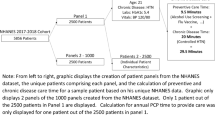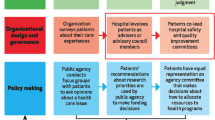Abstract
Community Health Workers (CHWs) are a group of trained health professionals who advocate for members within their communities on social and health care issues. CHWs are increasingly utilized due to their affordability, accessibility, and ability to relate to patients. Evaluating CHW medication management practices, confidence, and training gaps may provide a better understanding of medication management training needs. The purpose of this cross-sectional survey was to assess CHW confidence in medication management, describe medication management services, and identify areas of focus to improve CHW medication management training. A 32-item survey was administered to CHWs in Idaho, Indiana, Nevada, and Oregon through their state’s CHW email listservs. The survey content covered four domains: (1) demographic information, (2) work history, (3) experience with medication management and (4) CHW training including specific questions regarding medication management training. Two free-response questions assessed whether medication management training was beneficial and gathered suggestions for medication management-specific training. A total of 77 CHWs completed the survey of which, 90.9% were female, 38.9% worked as CHWs between 1 and 3 years, and 89.6% received instate CHW training. Over three-fourths of respondents (79.2%) provide medication management-related services and 57.1% rate their confidence in medication management as ‘poor’ or ‘fair.’ CHWs reported a need for additional medication management training within CHW certificate and continuing education programs. CHWs provide medication management services but have low confidence in their ability to provide such services. A greater emphasis on medication management training should be included in CHW certificate and continuing education programs.

Similar content being viewed by others
References
APHA. (2018). Community Health Workers. Retrieved July 10, 2018 from https://www.apha.org/apha-communities/member-sections/community-health-workers.
Allen, C., Brownstein, J. N., & Mirambeau, A. (2014). States implementing Community Health Worker strategies. Retrieved July 10, 2018 from https://www.cdc.gov/dhdsp/programs/spha/docs/1305_ta_guide_chws.pdf.
Snyder, J. E. (2016). Community Health Workers: Roles and opportunities in health care delivery reform. Department of Health and Human Services, Office of the Assistant Secretary for Planning and Evaluation Issue Brief. Retrieved July 11, 2018 https://aspe.hhs.gov/system/files/pdf/168956/CHWPolicy.pdf.
Kash, B. A., May, M. L., & Tai-Seale, M. (2007). Community Health Worker and certificate programs in the United States: Findings from a national survey. Health Policy, 80, 32–42.
Allen, C. G., Brownstein, J. N., Satsaugi, A. S., & Escoffery, C. (2016). Community Health Worker as allies in hypertension self-management and medication adherence in the United States, 2014. Preventing Chronic Disease, 13, 160236.
Xavier, D., Gupta, R., Kamath, D., et al. (2016). Community health worker-based intervention of adherence to drug and lifestyle change after acute coronary syndrome: A multicenter open randomized controlled trial. Lancet Diabetes & Endocrinology, 4(3), 244–253.
Bailey, J. E., Surbhi, S., Bell, P. C., Jones, A. M., Rashed, S., & Ugwueke, M. O. (2016). SafeMed: Using pharmacy technicians in a novel role as community health workers to improve transitions of care. Journal of the American Pharmacists Association, 56(1), 73–81.
Gellad, W. F., Grenard, J. L., & Marcum, Z. A. (2011). A systemic review of barriers medication adherence in the elderly: Looking beyond cost and regimen compacity. The American Journal of Geriatric Pharmacotherapy, 9(1), 11–23.
Agency for Healthcare Research and Quality. (2017). Medication management strategy: Intervention. Retrieved April 7, 2019 from http://www.ahrq.gov/professionals/quality-patient-safety/patient-family-engagement/pfeprimarycare/interventions/medmanage.html.
Seabury, S. A., Gupta, C. N., Philipson, T. J., Henkhaus, L. E., & PhRMA Medication Adherence Advisory Council. (2014). Understanding and overcoming barriers to medication adherence. Journal of Managed Care and Specialty Pharmacy, 20(8), 775–783.
National Academy for State Health Policy. (2018). State Community Health Worker models. Retrieved September 4, 2018 from https://nashp.org/state-community-health-worker-models/.
Massachusetts Department of Public Health. (2016). Massachusetts Community Health Worker survey report. Retrieved September 4, from https://www.mass.gov/files/documents/2016/07/or/comm-health-workers-append.pdf.
North Country Health Consortium. (2017). Community Health Worker (CHW) Assessment 2017 North Country Region. Retrieved September 4, from http://www.nchcnh.org/images/NCHCuplds/2017_CHW_Needs_Assessment_Final.pdf.
WellShare International. (2015). Summary of results from a statewide survey of CHWs in Minnesota perspectives on the community health worker workforce. Retrieved September 7, from http://www.epi.umn.edu/mch/wp-content/uploads/2015/11/PerspectivesOnTheCHWWorkforce_Summary_WellShare_Sept2015.pdf.
Acknowledgement
Noelle Wiggins and Edna Nyamu for review and feedback on survey development.
Funding
This study did not receive any specific grant from funding agencies in the public, commercial or not-for-profit sectors.
Author information
Authors and Affiliations
Corresponding author
Ethics declarations
Conflict of interest
The authors declare no relevant conflicts of interest or financial relationships.
Additional information
Publisher’s Note
Springer Nature remains neutral with regard to jurisdictional claims in published maps and institutional affiliations.
Rights and permissions
About this article
Cite this article
Jam, V.A., McKay, K.L. & Holmes, J.T. Identifying Medication Management Confidence and Gaps in Training Among Community Health Workers in the United States. J Community Health 44, 1180–1184 (2019). https://doi.org/10.1007/s10900-019-00688-9
Published:
Issue Date:
DOI: https://doi.org/10.1007/s10900-019-00688-9




